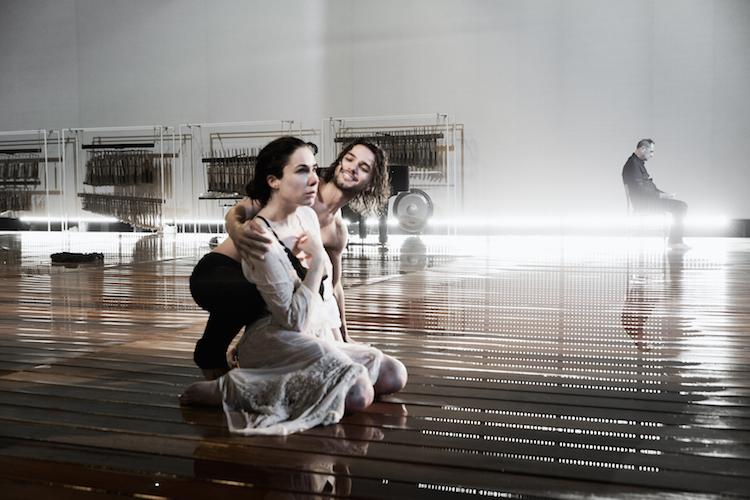
Faithful to the alluring yet foreboding atmosphere of the original novel by Louis Couperus, the Ivo van Hove / Toneelgroep Amsterdam stage production of De stille kracht (The Hidden Force) conjures up the colonial world of the Dutch East Indies as an opulent but decaying paradise, battered by the odd monsoon. The year is 1900, and 100 years of occupation in ‘India’ (present day Indonesia) has given birth to some mixed up inhabitants of east/west blood and influences, some as rigidly addicted to a sense of entitlement as they are saturated in that desire for sexual adventurousness, that does tend to grasp one in warm, damp climes.
Fading Grandeur
Set on the island of Java, the original book (available in translation for free download here) is phenomenally addictive, a kind of Conrad-meets-Tolstoy, in which Couperus himself is very much present, taking a voyeuristic interest in the inner lives of, particularly, his female characters. Just as in the book, the play seems to wander listlessly from scene to scene; characters linger on stage, staring off into the distance, or they drift on and off as if they were haunting it. Among them, the dutiful ‘resident’ Van Oudijck, head of the Labuwangi district: a rigorous Dutch authority figure who spends much of the play crouching and scribbling at his chair like a schoolboy. Yet for all his old-world inflexibility, Van Oudijck is a deeply sympathetic figure, a man of seemingly unshakable rational principles, who keeps his finger in the dyke no matter what. He is almost deliberately oblivious to the erotic activities of his younger wife Léonie, who engages in relations both with her stepson Theo and the frankly raunchy Addy, the love interest of her stepdaughter Doddy.
Dark Forces
But ‘immorality’ is as much an importation as it is something encouraged by the ‘native climate’. In a key scene of the play, Van Oudijck boots Sunario, a drunken gambler, from his post as Regent. This would be understandable, were it not for the fact that Sunario is a divinely-appointed Javanese prince and it means the humiliation of his splendidly regal mum. This act tips relations over the edge, triggering a series of rather horrible occurrences, so shocking to Van Oudijck in their very inexplicability, that they prove to be his undoing.
Whatever the mysterious dark forces that give the book its name, be they heralding the end of empire or questioning the hollow excuses on which it was built, – the image of the cockroaches that invade Eva’s grand piano and nibble at its strings! – this melancholic yet startling play is less an “indictment of Dutch colonialism” as a sensitive, non-judgemental observation of the dissolution of the colonial ideal as a personal tragedy of those that inhabit it.
Photo: © Jan Versweyveld
De stille kracht (The Hidden Force / La força oculta) was @ Teatre Lliure in Barcelona with the Grec Festival 2016 on July 2-3 and was in Dutch with Catalan surtitles.
De stille kracht is the first of three novels by Couperus that Ivo van Hove plans to bring to the stage. The second, based on the novel Old People and the Things that Pass (1906), will be staged in Belgium / Holland from September as De dingen die voorbijgaan – surtitles in English available on certain nights.
